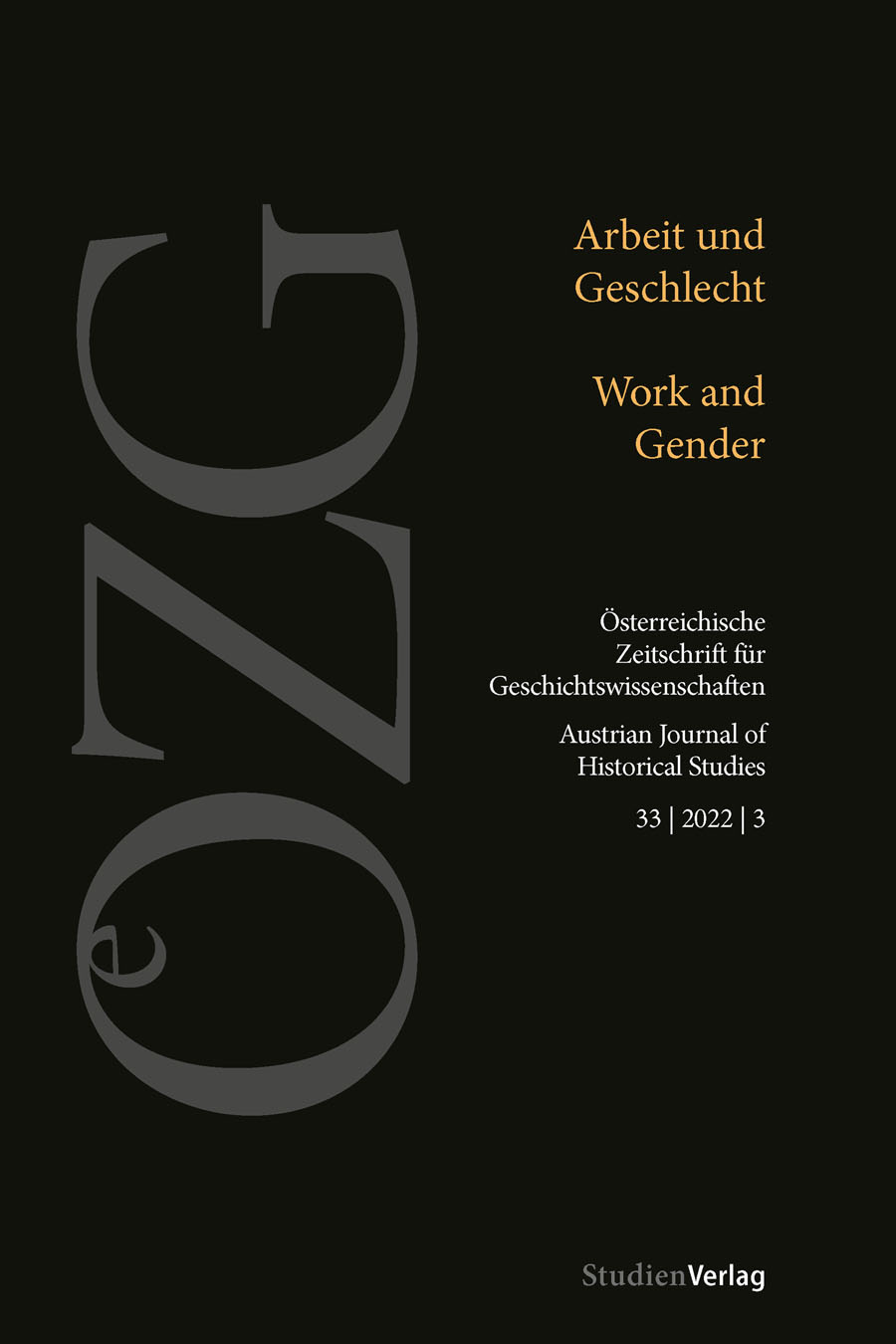Smoke Signals: Tobacco Production and Gender in a Global and Historiographic Context
DOI:
https://doi.org/10.25365/oezg-2022-33-3-4Keywords:
tobacco, labour, gender, work, Marie Tusch, cigararice, tabacheine, Fiume/Rijeka, National Consumers’ League, Lucy Randolph Mason, Local 22, Moranda SmithAbstract
This contribution aims to unpack female public and political agency within tobacco factories while highlighting and contrasting
twentieth-century case studies, based on the European and North American continents at the intersections of gender, class, and race. Further, the article analyses the diverse and differing working conditions for women employees in the tobacco sector and their socio-economic implications from a national, transborder, and transatlantic perspective. By examining and discussing gendered processes and cultural norms in cigarette and cigar manufacturing plants in Austria-Hungary, the post-Habsburg territories, and the United States from the late nineteenth century to the end of the Second World War, this study attempts to dissect the parameters sex, social milieus, ethnicity, and migratory backgrounds in conjunction with multi-layered exploitative processes of production and consumption in the tobacco industry.
Downloads
Published
How to Cite
Issue
Section
License
Copyright (c) 2022 Austrian Journal of Historical Studies

This work is licensed under a Creative Commons Attribution 4.0 International License.


